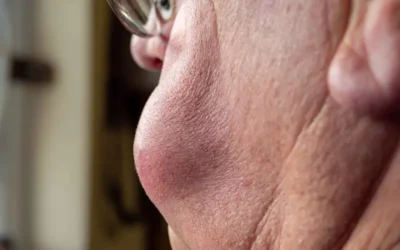Reporting of pathology procedures and clinical lab tests witnessed several changes starting October 1, 2016. Medical coding outsourcing is widely recognized as a practical strategy to help pathology labs maximize reimbursement, avoid denials, and stay compliant with accurate diagnostic coding.
The golden rule in 2017 is to code to the full specificity of services provided. This implies the following:
- Diagnoses documented as probable, suspected, questionable, rule-out or a working diagnosis should not be coded. Instead, the condition should be used.
- If a non-specific code is used, the underlying sign/symptom or condition must be related to the indications for the test
Here are the key ICD-10 coding changes impacting pathology lab reporting in 2017:
Malignant Carcinoid Tumors code updates
ICD-10 code updates of the site-specific malignant carcinoid tumors in 2017 changed code definitions from ‘NOS’ or ‘not otherwise specified,’ to ‘unspecified’ as follows:
C7A.094 – Malignant carcinoid tumor of the foregut, unspecified
C7A.095 – Malignant carcinoid tumor of the midgut, unspecified
C7A.096 – Malignant carcinoid tumor of the hindgut, unspecified
Even without specific documentation regarding the site of the tumor, these revised site-specific diagnosis codes allow providers to choose a diagnosis that matches their documentation.
Revision of descriptors for codes related to Hodgkin’s Lymphoma
The latest ICD-10 Code set features revisions to descriptors for over 50 codes related to Hodgkin’s lymphoma (category C81).The word ‘classical’ has been deleted from all the code definitions in C81 and added as an inclusion term for the category. For example, the new code descriptors for Nodular Sclerosis are:
C81: Hodgkin lymphoma
C81.1: Nodular sclerosis
Hodgkin lymphoma
Nodular sclerosis classical
Hodgkin lymphoma
C81.10: Nodular sclerosis Hodgkin lymphoma unspecified site
C81.11: Nodular sclerosis Hodgkin lymphoma, lymph nodes of head, face, and neck.
C81.12: Nodular sclerosis Hodgkin lymphoma, intrathoracic lymph nodes.
C81.13: Nodular sclerosis Hodgkin lymphoma, intraabdominal lymph nodes.
C81.14: Nodular sclerosis Hodgkin lymphoma, lymph nodes of axilla and upper limb.
C81.15: Nodular sclerosis Hodgkin lymphoma, lymph nodes inguinal region, lower limb.
C81.16: Nodular sclerosis Hodgkin lymphoma, intrapelvic lymph nodes.
C81.17: Nodular sclerosis Hodgkin lymphoma, spleen
C81.18: Nodular sclerosis Hodgkin lymphoma, lymph nodes of multiple sites.
C81.19: Nodular sclerosis Hodgkin lymphoma, extranodal and solid organ sites
Viral Hepatitis coding changes
In 2017, ICD-10 updates deactivated the diagnosis codes for viral hepatitis carrier status, and consolidated that condition into the codes for chronic viral hepatitis. The deleted viral hepatitis codes are: Z22.5 carrier of viral hepatitis; Z22.50 Carrier of unspecified viral hepatitis; Z22.51 Carrier of viral hepatitis B; Z22.52 Carrier of viral hepatitis C, and Z22.59 Carrier of other viral hepatitis.
Viral hepatitis carrier cases should be coded to category B18, Chronic viral hepatitis as follows:
B18 – Chronic viral hepatitis – includes carrier of viral hepatitis
B18.9 – Chronic viral hepatitis, unspecified Includes carrier of unspecified hepatitis
B18.1 – Chronic viral hepatitis B without delta-agent – includes carrier of viral hepatitis B
B18.2 – Chronic viral hepatitis C – includes carrier of viral hepatitis C
B18.8 – Other chronic viral hepatitis – includes carrier of other viral hepatitis
Prostate Dx Changes
Prostate dysplasia code – N42.3 has been deleted and replaced with the following more specific codes:
N42.30 – Unspecified dysplasia of prostate
N42.31 – Prostatic intraepithelial neoplasia
N42.32 – Atypical small acinar proliferation of prostate
N42.39 – Other dysplasia of prostate
This expansion is expected to help in tracking the types of dysplasia of the prostrate, which would allowing for more specific tracking of types/cause/severity/progression and developing treatment guideline limitations.
New Gastrointestinal Stromal Tumor (GIST) codes
Prior to Oct. 1, diagnosis of gastrointestinal stromal tumor (GIST) was coded using a non-specific ICD-10 code for a malignant or uncertain behavior by tumor site, for e.g., C17. In 2017, there are new, four-character codes specific to GISTs, which require identification of the location of the GIST as follows:
- C49.A0 Gastrointestinal stromal tumor, unspecified site
- C49.A1Gastrointestinal stromal tumor of esophagus
- C49.A2 Gastrointestinal stromal tumor of stomach
- C49.A3 Gastrointestinal stromal tumor of small intestine
- C49.A4 Gastrointestinal stromal tumor of large intestine
- C49.A5 Gastrointestinal stromal tumor of rectum
- C49.A9 Gastrointestinal stromal tumor of other sites
Ovarian Cyst (category 83) coding changes
Category 83 codes N83.0, N83.1, N83.20, and N83.29 have been deleted and replaced with specific codes that include an additional (fifth or sixth) digit to indicate laterality of the ovarian cyst. Therefore, for accurate coding, the surgeon would need to specify as to whether the cystic ovary is on the right or left side.
In 2017, code options related to cysts, atrophy, prolapse and hernia, and torsion of the ovaries and fallopian tubes have expanded to identify the side. Five or six characters may have to be used to create complete codes in category N83 as follows:
- N83.0-, Follicular cyst of ovary
- N83.1-, Corpus luteum cyst
- N83.4-, Prolapse and hernia of ovary and fallopian tube
Fifth character options to use:
- 0, unspecified side
- 1, right
- 2, left
- N83.20-, Unspecified ovarian cysts
- N83.29-, Other ovarian cysts
- N83.31-, Acquired atrophy of ovary
- N83.32-, Acquired atrophy of fallopian tube
- N83.33-, Acquired atrophy of ovary and fallopian tube
- N83.51-, Torsion of ovary and ovarian pedicle
- N83.52-, Torsion of fallopian tube
Sixth character options to use:
- 1, right
- 2, left
- 9, unspecified side
Reliable pathology medical coding services are available to help providers report ICD-10 codes based on the most specific diagnosis. Up-to-date on all the new, revised, and existing diagnostic codes for pathology as well as coverage rules, an experienced medical coding company can help labs stay on top of the changes to optimize reimbursement with accurate pathology and laboratory reporting.



